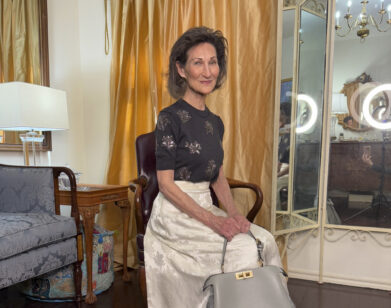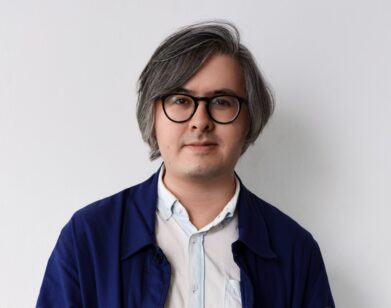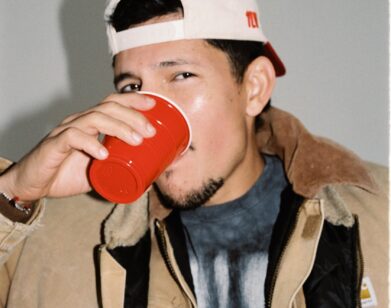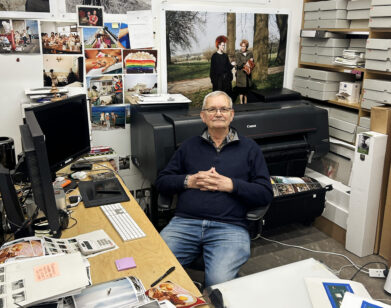Tuning In with Adam Wilson
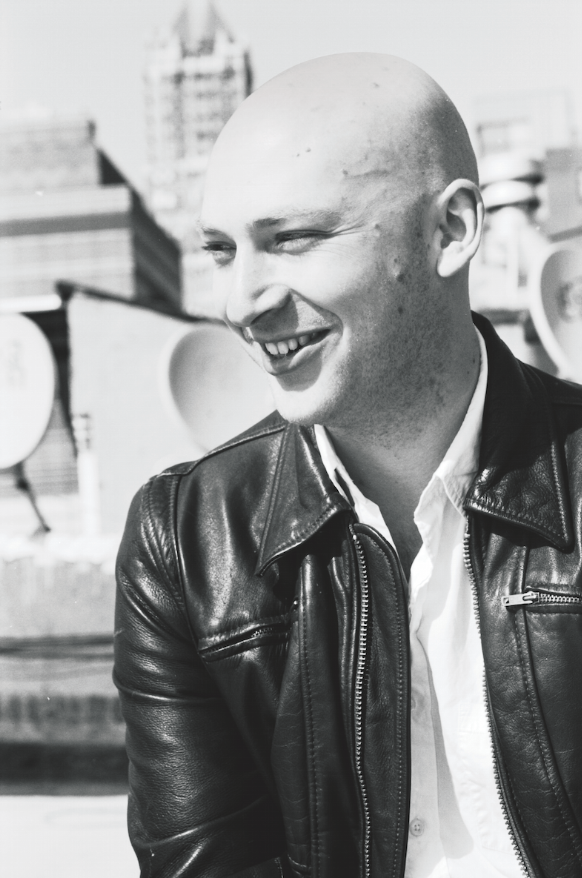
In Adam Wilson’s Flatscreen (Harper Perennial), TV, drugs and suburban malaise are darkly, sometimes uproariously melded to create a moody and unique coming-of-age novel. Eli Schwartz is living in a suburban dream gone horribly wrong: his parents’ marriage has ended, his high-achieving older brother thinks he’s a loser, and his childhood home is being sold to Seymour Khan, a paraplegic ex-movie star with an unquenchable sex drive, lust for drugs, and beautiful lesbian ex-wife.
Everything is falling apart around Eli, so he turns to television, inebriation, culinary arts, and ill-fated females who in turns scorn him and crave his kindness. Wilson deftly describes the lows of loserdom and also cleverly captures the moments full of love, kinship, and complex real relationships that can take us out of TV land and into the real world. We spoke with Wilson about regrets, drugs in suburbia, The O.C., John Cusack, and why getting stoned and watching Netflix for a week on end is a bad idea (maybe).
ROYAL YOUNG: How does regret shape our lives?
ADAM WILSON: I think it can be really crippling. But I feel like I regretted all sorts of things, and then was like, maybe if I hadn’t done those things I regretted, my life would have been totally different. If I hadn’t done lots of drugs, maybe I wouldn’t have been able to write a book about a guy doing lots of drugs. Sometimes what you regret can end up shaping you for good.
YOUNG: How can drugs be used in different ways? Sometimes we use them to get out of ourselves, but sometimes I think they can be positive too.
WILSON: I agree. I don’t think drugs are inherently bad. I definitely think I’d be a different person if I hadn’t done drugs, but most of that has to do with the people I met in that world, all the various rituals surrounding it. I think many people can do certain drugs and drink in a way that isn’t completely destructive to their lives, and some people can’t do that. It’s a really fine line between the two. The hardest thing is to have perspective on your own self and realize how you’re being affected. I used to smoke a lot of pot when I was young, and I stopped. Until I stopped, I had no sense of the fact that I had been smoking all this pot because I was really depressed and that it was making me really lazy. But that doesn’t necessarily mean that if I want to go out and have a crazy night, that’s going to send me spiraling into some deep depression or addictive hole.
YOUNG: There’s this common idea cities are rife with drug abuse, but I feel like in suburbia there’s so much drug abuse.
WILSON: Oh yeah. When I went to college, I remember being amazed at how much crazier my high school was. I grew up in a town that was known as being this really wealthy town in Massachusetts, but there was also a working-class section; it was big enough to hold a bunch of different entities. Anytime you have that mixture of people with a lot of money and people who might know how to score drugs, it’s going to be a bad combination. And with wealthy people, I remember kids finding their parents’ coke.
YOUNG: Do you also think there’s a level of boredom that incites the drug use?
WILSON: Oh yeah, definitely. Incredible boredom.
YOUNG: Riffing off that boredom, escape and need for distraction, I wanted to talk about television. How does it change our perception?
WILSON: When I was in college and stopped smoking pot, in some weird way I think I replaced it with watching TV. There was a period in my life where I could watch hours and hours of television. It felt like a drug in the sense that it’s an escape that really sucks you out of your own life and into fantasy worlds. Probably the loneliest year of my life after college, I lived in Austin, Texas, didn’t really know anyone there, and had a terrible job holding up a giant orange arrow at a highway exit ramp. It was completely humiliating and soul-crushing. I had the first season of The O.C. on DVD and all I could do was watch it over and over again and imagine myself in California with one of those giant swimming pools in my backyard and all these really beautiful people surrounding me. The fantasy can get away with you to the point where you’ve completely forgotten your life. In the book, one thing I was really interested in exploring is that the main character Eli, he’s watched so much television and movies, that his points of reference all come from pop culture. They’ve given him all these ridiculous and totally improbable ideas or Hollywood tropes of what a good life is and what a relationship is. This has replaced any real-life experience. When he is forced to go out into the world, he’s totally confused.
YOUNG: I do think to a degree, everyone who’s been exposed to that kind of material yearns for it, and that comes through in the way they act.
WILSON: Yeah, I think it can give you false expectations of what will make you happy or what is an ideal.
YOUNG: To what extent do you think we all play make-believe or feed into these ideals or fantasies about how life should play out?
WILSON: Some of us more than others. I think it’s kind of impossible to not be influenced by these prescribed social narratives, but I think you need to be aware the things you’re striving for are just these silly fantasies you’ve lifted from movies. Especially when it comes to romantic relationships. There’s a great Chuck Klosterman essay where he talks about how John Cusack has ruined love for him, because no matter how good he is as a boyfriend, he’ll never be John Cusack, and women will always want him to be. I really think there’s a lot of truth to that. My girlfriend often says things to me like “Ryan Gosling would never, ever have farted just now.”
YOUNG: [laughs] Is letting people in more important than keeping them out?
WILSON: I definitely think so. Some people seem to think this book is quite dark, and I intended it to be. Certainly it’s not a typical coming-of-age novel where by the end, Eli is ready to take on life, but I do think he’s inched his way closer to having real relationships with people. That’s not a small thing.
YOUNG: What do you think of someone who closes themselves off, watches hours and hours of television versus someone who commits to relationships and lives in the world? Why shouldn’t I stay in my room and watch Netflix for the next week?
WILSON: [laughs] Well there are obvious reasons, like you probably wouldn’t get laid.
YOUNG: [laughs] I’d just call it in.
WILSON: [laughs] Well, if you can do that, it might work for you. Ultimately, I do think you’ll have human connections that are much more satisfying than your connection with your television. That’s one of the few great things we can have in life. But, I don’t know. Maybe I’m wrong. Maybe you’ll get off the couch, go out into the world, it will be shitty and you’ll want to get high, watch TV and call in sex. Sometimes, that doesn’t sound so bad.
FLATSCREEN IS OUT TODAY.

